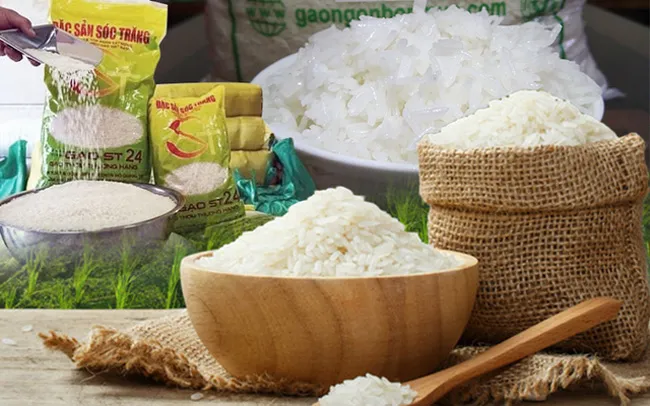
Some of these branded products have now become very well-known across the globe, and contribute to enhancing Vietnam's image in the international arena. Sadly, the fate of some of these Vietnamese brands has changed hands and now are no longer indigenous.
In 1982, Vietnam's famous Phu Quoc fish sauce was overtaken by Viet Huong Fishsauce Company, based in the US of America. Since then, the US trademark registration agency has granted the trademark of Phu Quoc fish sauce exclusively for use to the US company. The image of the trademark of Viet Huong Company even has the words "Phu Quoc" written on it, with the logo of an anchovy and a map of Vietnam, with a sign indicating the location of Phu Quoc island district, now Phu Quoc City, in Kien Giang province.
From 1997, the Vinamit Company started to bring dried jackfruit under the brand name Duc Thanh to the Chinese Mainland and registered for copyright protection for the Duc Thanh trademark in China. However, since the registration was only in Vietnamese, and not in Chinese, its distributor then decided to re-register the Duc Thanh trademark in Chinese. This distributor controlled the Duc Thanh market and quickly released a similar product. It took the Vinamit Company three long years to reclaim its brand name.
ST25 rice, also known as Soc Trang fragrant rice, was the research result of engineer Ho Quang Cua after twenty years. From seed selection to planting, it required strict principles of organic rice production, to finally produce clean and healthy high yielding rice. The quality of ST25 rice has been recognized internationally when it won the title of "World's Best Rice 2019" in a contest in the Philippines, and the second prize at the contest "World's Best Rice 2020" held in America. Under the Decision 706/QD-TTg, dated 21 May 2015, by the Prime Minister, this rice brand was approved under a project to develop a Vietnamese rice brand by 2020 with a vision until 2030. During the integration era, businesses all understand that building and protecting trademarks and intellectual property are always vital.
However, one had hoped that with ST25, Vietnamese rice would flourish. Unfortunately, five foreign enterprises quickly registered for trademark protection of the name ST25, in the US market, under the US Trademark Registration System (USPTO). The ST25 rice trademark registration dossiers are now under examination, and presently one file is about to be approved for trademark protection. The Australian business, T&L Global Foods Supply Pty Ltd, filed an application for trademark registration of ST24 and ST25, selling it as "the world's best rice". The application for trademark protection of this business is being appraised by the Australian Intellectual Property Office (IP Australia).
The engineer Ho Quang Cua spent 20 years to develop a rare form of rice, which has now moved into unknown hands. Authorities say that it is the businesses themselves who have to protect their own trademark rights, because if you create it you must also protect it. This is a valuable lesson for both Vietnamese authorities and Vietnamese businesses to protect their brands in future.




















